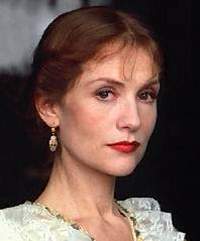Good Poets, Bad Men
What is it with most of the great writers and artists? Why do they almost always fall short of the image that readers have of them, in their real lives? Take the great trinity of modern poets. Eliot, in real life turned out to be a gross reactionary and an anti-semite (although some critics claim that even his poetry is deeply anti-semitic, but that's controversial); Pound, a cranky fascist, who accused Eliot of having been infected by the "jewish poison" and Rilke, that ideal of soulful and sensitive artist, with the heart of an Aeolian harp who commuted and sang with the angels, turned out to be a gross manipulator, emotional black-mailer, selfish snob, brutish husband, cruel father among many other similar atrocious things. And a few years back, with the publication of his private journals and letters, Philip Larkin, the unofficial poet-laureate of England, turned out to be a racist, misogynist, extreme reactionary and a right-wing crackpot. And as if all of this was not enough, his readers also came to know that he was a chronic masturbator and an avid consumer of pornography. Okay, the last two things can be claimed to be value-free, but more on that later.
There is a very interesting sequence in the Novel (for those who are new to this blog, "Novel" with a capital 'N' always refers to Proust's A la Recherche du Temps Perdu or In Search of Lost Time or for those of you inclined towards Shakespearean grandiosity, Remembrance of Things Past) in which Proust explores this conflict between the real personality of an artist and the personality that an artist projects in his works or at least the personality of the artist that the reader creates in the process of interpreting the work. The sequence comes early in the second volume of the Novel. The narrator gets to meet the novelist Bergotte, whom he has idolized for long in a party at Swann's place and is cruelly disappointed first with his appearance and later with his intellectual abilities as displayed socially with other people. Here's a short extract from the Novel, although the whole sequence is quite exhaustive and detailed. It is also a great work of literary criticism. Reading this we also learn that, that was the period when there was no concept of having author's photograph on book's jacket. Otherwise, our poor narrator would have been saved from some of his disappointments! This is when Mme. Swann introduces our narrator to Bergotte in her party:
The name Bergotte made me jump like the sound of a revolver fired at me point blank, but instinctively, for appearance's sake, I bowed; there, straight in front of me, as by one of those conjurers whom we see standing whole and unharmed, in their frock coats, in the smoke of a pistol shot out of which a pigeon has just fluttered, my salute was returned by a young common little thick-set peering person, with a red nose curled like a snail-shell and a black tuft on his chin. I was cruelly disappointed, for what had just vanished in the dust of the explosion was not only the feeble old man, of whom no vestige now remained; there was also the beauty of an immense work which I had contrived to enshrine in the frail and hallowed organism that I had constructed, like a temple, expressly for itself, but for which no room was to be found in the squat figure, packed tight with blood-vessels, bones, muscles, sinews, of the little man with the snub nose and black beard who stood before me. All the Bergotte whom I had slowly and delicately elaborated for myself, drop by drop, like a stalactite, out of the transparent beauty of his books, ceased (I could see at once) to be of any use, the moment I was obliged to include in him the snail-shell nose and to utilise the little black beard; just as we must reject as worthless the solution of a problem the terms of which we have not read in full, having failed to observe that the total must amount to a specified figure.
The narrator goes on in the typical Proustian fashion to great detail and explores everything possible about the appearance and then as a conclusion says:
[Bergotte's books] at once began to fall in my estimation (dragging down with them the whole value of Beauty, of the world, of life itself), until they seemed to have been merely the casual amusement of a man with a little beard. I told myself that he must have taken great pains over them, but that, if he had lived upon an island surrounded by beds of pearl-oysters, he would instead have devoted himself to, and would have made a fortune out of, the pearling trade. His work no longer appeared to me so inevitable. And then I asked myself whether originality did indeed prove that great writers were gods, ruling each one over a kingdom that was his alone, or whether all that was not rather make-believe, whether the differences between one man's book and another's were not the result of their respective labours rather than the expression of a radical and essential difference between two contrasted personalities.
This is perhaps the greatest defence of the willed absence of the artist's personality in the work of art that he creates. Proust himself in an earlier work of literary criticism Contre Saint-Beuve, said "a book is the product of a different self from the self we manifest in our habits, in our social life, in our vices." Perhaps, this explains why the poetry of all those men still endures even though the men in question were always despicable beyond any redemption.




